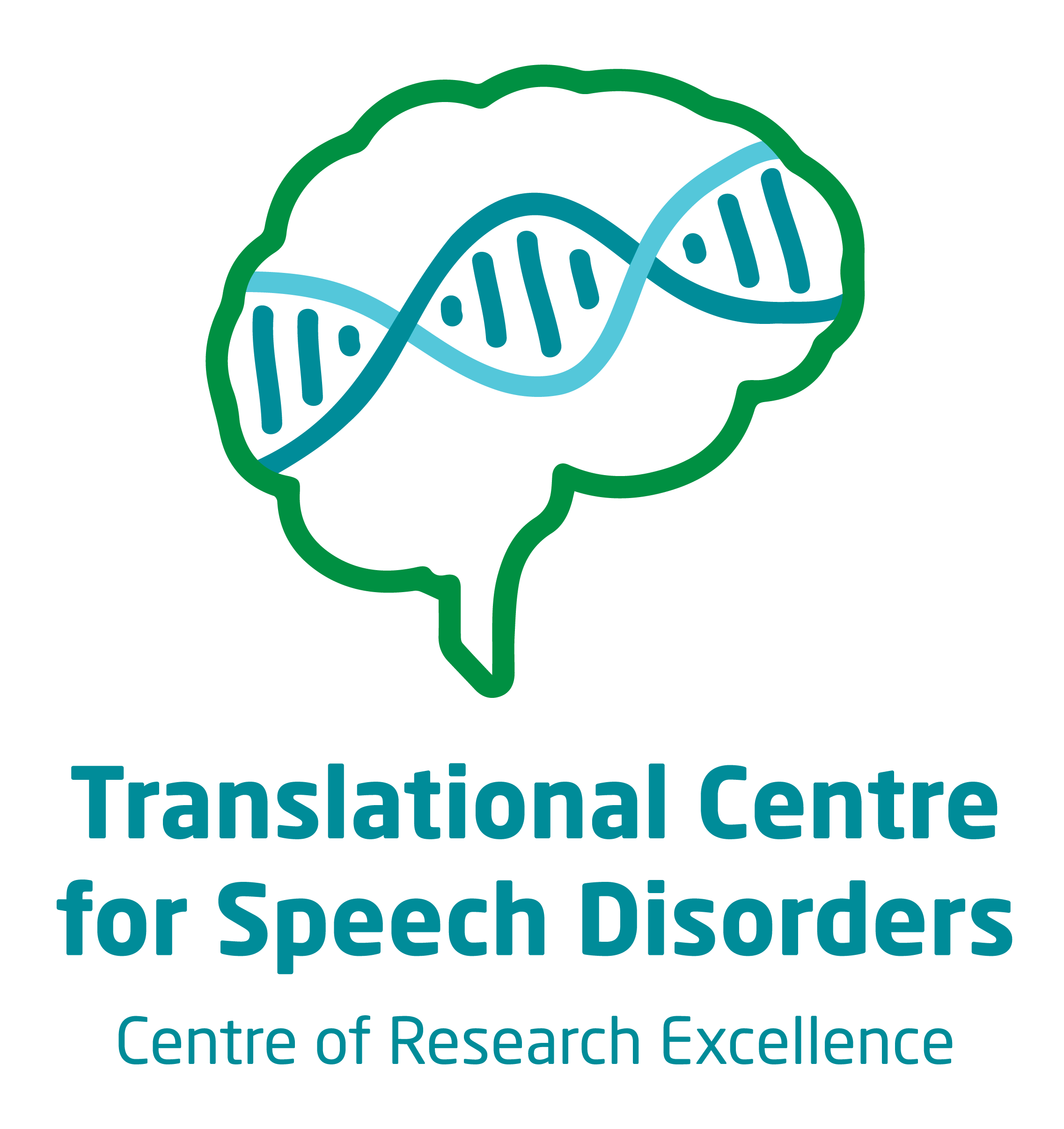Research
Genetics of Speech Disorders
Researchers from the NHMRC Centre of Research Excellence - Translational Centre for Speech Disorders are currently investigating the genetic causes of severe speech disorders such as childhood apraxia of speech (CAS), dysarthria and severe phonological disorder. Although genetic factors are thought to play a significant role in speech and language disorders, little is understood on the genetic bases of these conditions. Currently, many treatments for speech and language disorders focus on symptoms only without targeting the underlying cause of the problem. Learning more about the genetic and neurobiological basis of speech and language disorders will help us identify who may be at risk and allow us to develop more targeted treatments.







